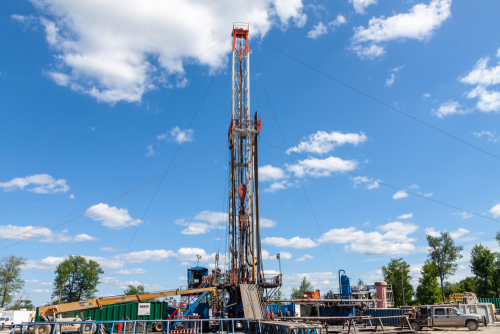
New technologies and pipeline development present an opportunity for natural gas from Appalachia to fuel not just the region, but the world, said David Callahan, president of the Marcellus Shale Coalition.
During an Appalachian Shale Energy Outlook webinar on Feb. 16, Callahan said that natural gas from the Appalachian Basin is some of the cleanest in the world and feeds about a third of the country’s supply. And the development or expansion of pipelines from the region would bolster the Pennsylvania economy and help customers in other states struggling with high energy costs.
“New England is paying upwards of 81 percent more for their power,” he said. “We have seen FERC [Federal Energy Regulatory Commission] put together conferences in the past two years about how are we going to get through the winter. This is America, the most advanced economy in the world, and New England is struggling year after year with figuring out how they’re going to make it through the winter … and just several hundred miles away we have some of the most productive natural gas fields in the entire world and we could be helping with that.”
However, he said, there’s a need to get the product to market. Opening pipelines to areas up and down the Eastern seaboard would get high-quality, lower-cost domestic natural gas to those areas and prevent some states from having to import natural gas from foreign countries, he said. Additionally, exporting Appalachian natural gas to Europe would help our allies.
“We’ve said from day one that energy security is national security,” he said. “Clearly, Europe’s energy is at risk; their national security is at risk. We have not just an opportunity to do it, but an obligation to help our allies and natural gas is the way to do it… We know that European customers not only appreciate the reliability of American supply, it’s a reliability that will come from hundreds of thousands of companies in production instead of just one nation.”
Meanwhile, Callahan said his organization was working with the Shapiro administration to improve the permitting process for businesses in the natural gas industry to make obtaining permits not only fast and consistent but predictable.
“Energy can be our calling card that can bring economic development into this state,” he said.
The natural gas industry also is working on new technologies, such as monitoring capabilities, through partnerships with the region’s colleges and universities that help natural gas producers ensure cleaner operations. A showcase presenting new technologies will take place during the coalition’s Shale Insight 2023 Conference on Sept. 27-28 in Erie, Pa.
“Technology drove this industry and continues to propel this industry as well,” he said. “As we see great new work being done in the field and great new work being done in the labs, it is going to unlock even more resources, and lead to a very sustainable future for natural gas, as well.”
The industry also continues to learn from past weather-related challenges, he said. Last year’s Winter Storm Elliott taught valuable lessons about how to maintain power for customers during extreme weather events.
“The good part about all of this was that natural gas delivers. It was the primary source that got us through,” Callahan said, explaining that 50 percent of homes in Pennsylvania use natural gas or propane, and millions of those customers saw undisrupted service. “There were challenges, but those challenges are being addressed and there is even more cooperation going forward between the power generation side and the natural gas development side as well to make sure in those rare occurrences that we can continue to move forward.”
While the storm was unprecedented, natural gas was able to power the region, he said.